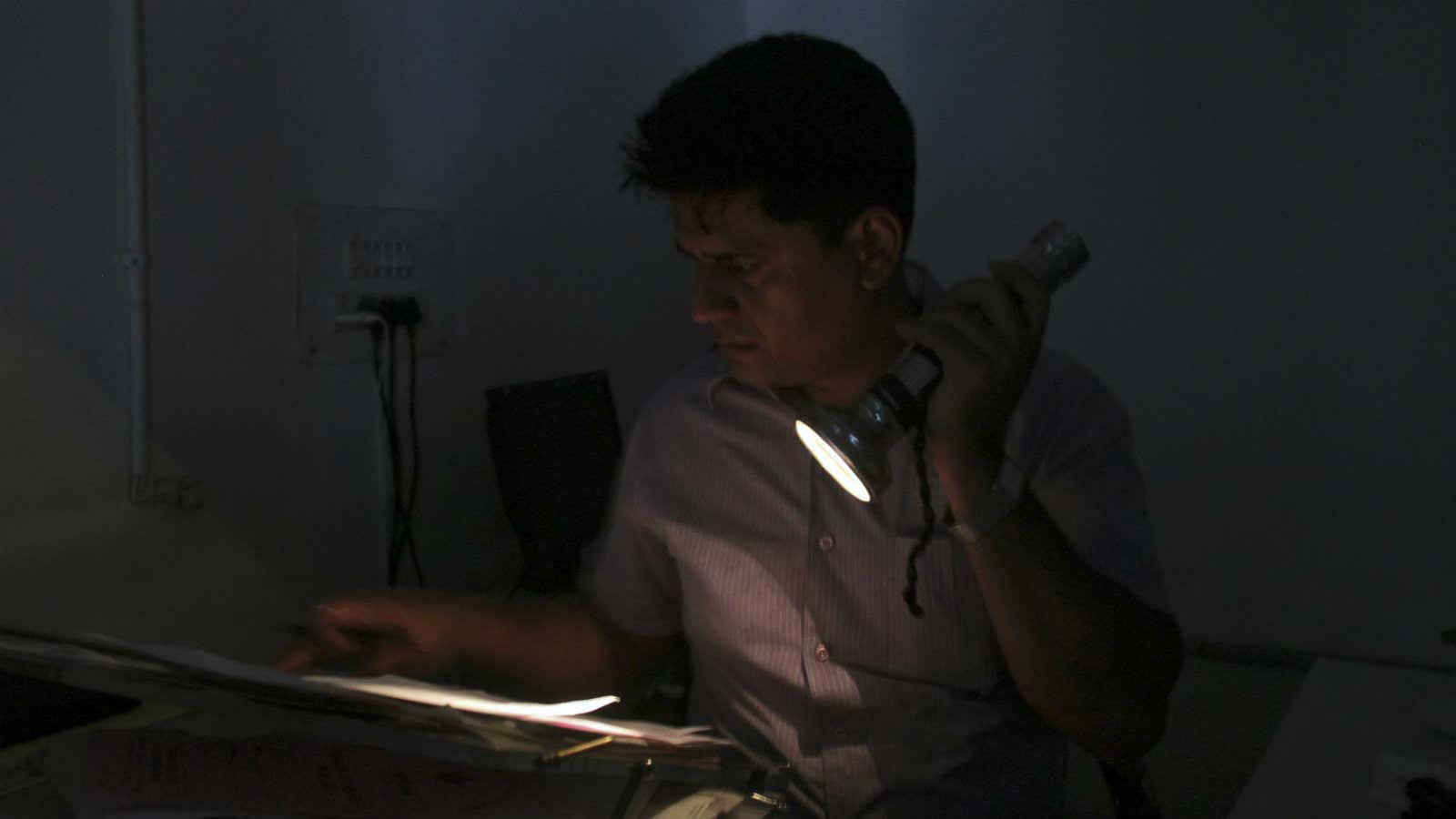Prime minister Narendra Modi is preparing to visit Silicon Valley later this month and sell India as an emerging hub for innovation and startups. But, for the last five days, entrepreneurs in the country’s tech capital, Bengaluru, have spent long periods grappling in the dark.
On Sept. 04, the Bangalore Electricity Supply Company (Bescom)—responsible for power distribution in eight districts of Karnataka—announced three hours of daily load shedding in the city, and four hours of outage in other urban areas in the state for a week, with immediate effect.
However, the situation in the city is much worse, with many areas being plunged into darkness for over six hours every day.
Bengaluru not only houses massive offices of global technology giants like Infosys, Wipro, IBM, Yahoo and Microsoft, but is also home to about 30% of India’s 3,100 technology startups.
While the bigger firms have enough options for ensuring uninterrupted power supply, it’s the startups that are taking the blow.
“We moved to a new office on Sept. 01, and for most part of last week we could hardly work because there were four to six hours of power cuts each day,” Avinash Saurabh, co-founder of social wellness platform Zoojoo.be, told Quartz. “Finally, yesterday, we got inverters installed for all the three floors of our office. We had to shell out around Rs70,000 on them, but there was no other way we could function smoothly.”
Bengaluru requires 2,150 megawatt (MW) of power every day, which is about 25% of the state’s total requirement, a Bescom spokesperson told Quartz. The power distribution company is currently facing a shortage of 900 MW, Bescom said in a release earlier this week.
The shortage has been caused because power generation sources—thermal power plants, hydel power units and wind energy units—are facing technical or supply problems.
There is a shortfall in supply from hydel power stations as insufficient monsoon rains have led to a decline in reservoir levels. Even as some parts of India are dealing with floods, rainfall across the country has been 13% lower than normal in the current monsoon season. In Karnataka, 135 taluks (administrative divisions) have been declared drought-hit.
Technical snarls at some units of thermal power plants at Raichur, Ballari, and Udupi have further hit power supply to Karnataka. In addition, power generated from wind mills has hit an all-time low of 17 MW recently.
Even as the state government has said that it is purchasing additional power, the crisis is expected to persist for another few days, according to some reports.
